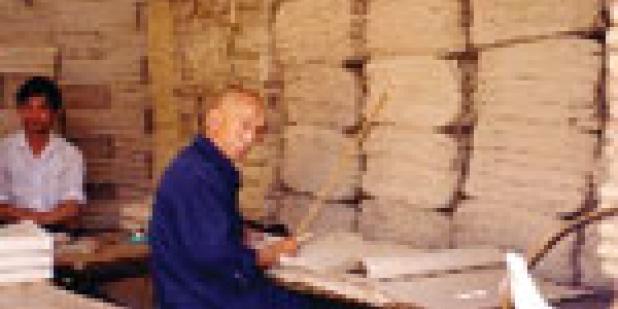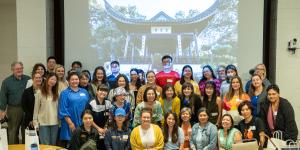On September 29, 2024, the USC U.S.-China Institute hosted a workshop at the Huntington’s Chinese garden, offering K-12 educators hands-on insights into using the garden as a teaching tool. With expert presentations, a guided tour, and new resources, the event explored how Chinese gardens' rich history and cultural significance can be integrated into classrooms. Interested in learning more? Click below for details on the workshop and upcoming programs for educators.
Citizenship and Skill in Twentieth-Century China
Professor Jacob Eyferth discusses the historical labor trends in China before the middle and twentieth century.
Where

Speaker/Performer: Jacob Eyferth, Associate Professor of East Asian Languages and Civilizations, University of Chicago
Before the middle of the twentieth century, most of China’s industrial output originated in the countryside, in small-town workshops and rural farms. Production was typically manual; production-related knowledge was passed on tacitly or orally from parents to children or from masters to apprentices. Regional specialization created economic interdependence; it also gave communities of skilled producers visibility in the wider cultural universe and a stake in the sociopolitical realm. As in the English cases described by the historical sociologist Margaret Somers, protoindustrial producers in the Chinese countryside understood their skills as a form of social membership: a precondition for the inclusion in a particular community of skilled producers and, through this community, in the wider polity. While China had no native language of citizenship rights, it had a long tradition of self-regulating guilds, villages, and kinship groups; of substantive rights to training, regulated employment, and guaranteed livelihood for members of such groups; and of informal representation of local interests through these groups. My talk will provide examples of several of such “communities of skill” and sketch out their history in the twentieth century, when local control over economically useful skills came under increasing attack.
Featured Articles
Happy Lunar New Year from the USC US-China Institute!
Events
Ying Zhu looks at new developments for Chinese and global streaming services.
David Zweig examines China's talent recruitment efforts, particularly towards those scientists and engineers who left China for further study. U.S. universities, labs and companies have long brought in talent from China. Are such people still welcome?






